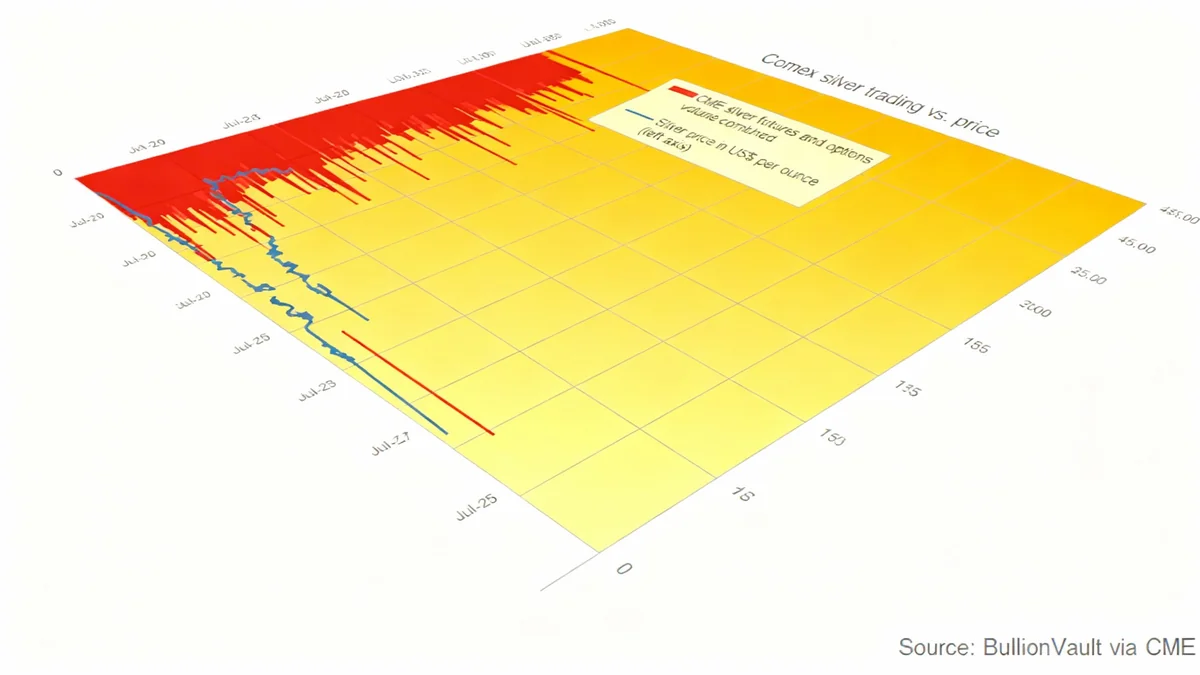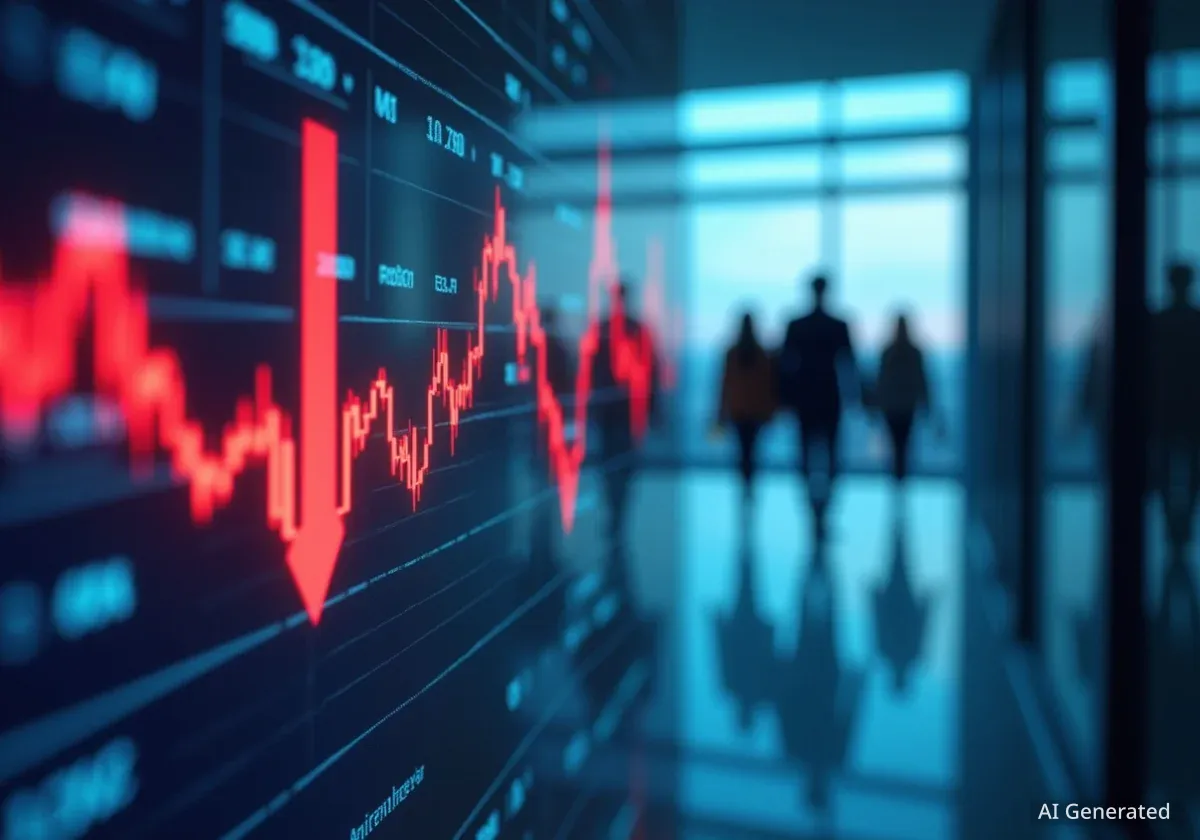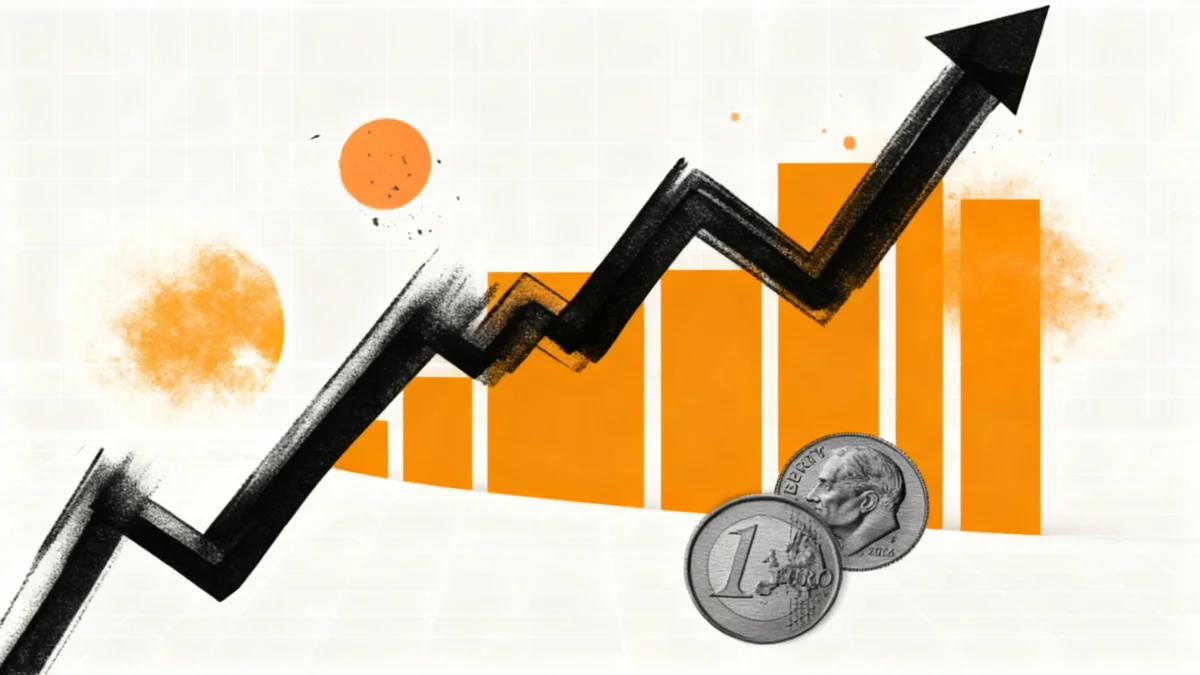U.S. stock markets are entering a critical phase as major banks prepare to release third-quarter earnings reports. This period arrives amidst a government shutdown, which has created a data vacuum and increased investor uncertainty. Analysts view these upcoming earnings as a key indicator for market direction, especially after recent tariff fears and a significant market drop.
Key Takeaways
- Third-quarter earnings from major banks will provide crucial market signals.
- The government shutdown has delayed important economic data, increasing reliance on corporate reports.
- Analysts have raised earnings estimates for S&P 500 companies, setting a high bar for performance.
- Recent tariff concerns contributed to a sharp decline in stock values.
Earnings Season Begins for Wall Street
The upcoming week marks the unofficial start of the third-quarter earnings season. Financial giants on Wall Street are set to release their results. These reports are expected to offer significant insights into the economic landscape, particularly in the absence of government data.
Michael Arone, chief investment strategist for State Street Investment Management, described the situation as a "vacuum of government data." He noted that this makes company earnings reports a vital catalyst for the market.
Market Fact
The S&P 500 is currently on track for its worst performance during a government shutdown since 1990. This highlights the heightened sensitivity of markets to political instability.
Impact of Government Shutdown and Data Delays
The ongoing government shutdown has led to delays in releasing key economic reports. For example, the Bureau of Labor Statistics (BLS) did not release the closely watched U.S. jobs report in early October. Additionally, the BLS has postponed the consumer-price index (CPI) inflation data, originally scheduled for this week, to October 24.
"The delay of closely watched government data such as the CPI inflation report just adds 'fog' to the general confusion of the U.S. government shutdown," stated David Kelly, chief global strategist at J.P. Morgan Asset Management.
This lack of official economic metrics means investors will scrutinize corporate earnings even more closely for signs of economic health.
Tariff Concerns and Market Volatility
Adding to the market's uncertainty are fresh tariff fears. Reports on Friday indicated potential increases in tariffs on Chinese goods, which contributed to a sharp market selloff.
The S&P 500 experienced its largest daily drop since April 10 on Friday, falling by 2.7%. The Dow Jones Industrial Average also saw significant declines. This volatility underscores investor sensitivity to trade policy developments.
Historical Context
Historically, October has been identified as the most volatile month for the stock market. This pattern adds another layer of complexity to the current environment, making investors wary of sudden movements.
Banking Sector Performance Under Scrutiny
Upcoming earnings reports from major financial institutions, including JPMorgan Chase & Co. and Wells Fargo, will be particularly important. These banks offer a direct view into the country's economic realities.
Joe Tigay, portfolio manager of the Rational Equity Armor Fund, explained, "The banks are a look in on some hard economic realities going on in the country, especially big banks like JPMorgan and Wells Fargo." He added that their results "will be scrutinized a little bit more carefully in the absence of the jobs data."
Michael Arone of State Street anticipates generally strong third-quarter earnings for banks and S&P 500 companies. However, he also expressed concern about the potential for disappointment if results do not meet elevated expectations.
Elevated Earnings Estimates
Analysts have slightly increased their earnings-per-share estimates for S&P 500 companies for the third quarter. This marks the first time such an increase has occurred since the fourth quarter of 2021, according to an October 3 report from FactSet's senior earnings analyst John Butters.
Typically, analysts tend to lower earnings estimates, making it easier for companies to surpass them. This current trend of raised estimates sets a higher bar for corporate performance.
- S&P 500 earnings-per-share estimates: Slightly increased for Q3.
- Historical trend: Analysts usually lower estimates before earnings season.
- Current implication: Higher risk of companies missing expectations.
Corporate Outlook and Investor Questions
The government shutdown will likely influence companies' upcoming earnings calls with analysts. Liz Ann Sonders, chief investment strategist at Charles Schwab, expects more pointed questions from analysts seeking to understand the broader macroeconomic backdrop.
Sonders also anticipates questions about capital expenditure (capex) and spending on artificial intelligence (AI). Analysts will be keen to know if companies are seeing "any more productivity benefits" from their AI investments.
Market Gain
Despite Friday's sharp decline, the S&P 500 closed the week only 3% below its record close on October 8. This indicates a resilient, though volatile, market.
While the market's fundamentals appear solid, the S&P 500 may be vulnerable. It has not experienced a major pullback since its surge from an April low. The index was up 31.5% from its April 8 trough, which followed earlier tariff announcements.
David Kelly believes the third quarter has been "pretty good" for the economy overall, and this should reflect in corporate earnings. However, he noted growing nervousness about the "Big Tech" sector, which some view as exhibiting characteristics similar to the dot-com bubble of 1999.
Kelly suggested that a significant "shock" would be required to reverse the current long bull market. Investors have shown a tendency to "buy the dip," assuming stocks will rebound after any temporary decline.





